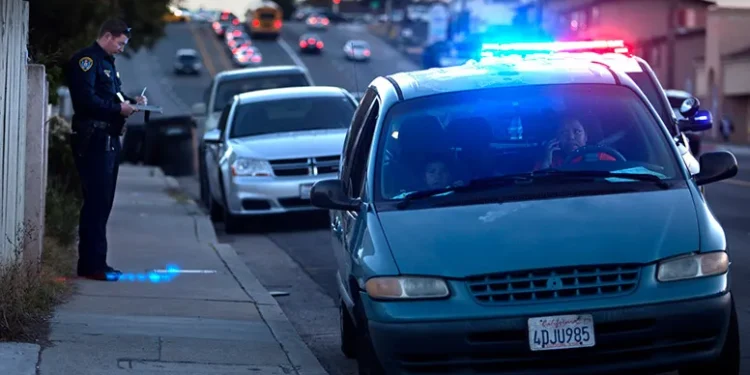Smartphones are an undeniable part of modern life. They contain a vast amount of personal information, from messages and photos to call history and browsing data. So, what happens when you’re pulled over for a traffic violation in Oklahoma and the officer asks to search your phone? The answer, like many things in law, is nuanced. This blog article will explore the legalities surrounding police searches of your phone during a traffic stop in Oklahoma.
Understanding Your Rights: The Fourth Amendment
This Article Includes
The Fourth Amendment to the U.S. Constitution protects individuals against unreasonable searches and seizures. This applies to traffic stops as well. In essence, law enforcement cannot search your car or belongings without a warrant, unless certain exceptions apply.
The Automobile Exception
One exception to the warrant requirement is the automobile exception. This allows police officers to search a vehicle, and anything found within it, without a warrant if they have probable cause to believe evidence of a crime is present. This exception is based on the rationale that vehicles are mobile, and the evidence could be gone by the time a warrant is obtained.
Cellphones: Not Part of the Vehicle
However, courts have consistently ruled that cellphones are not considered part of the vehicle itself. This means the automobile exception does not automatically extend to phone searches.
So, Can the Police Search My Phone During a Traffic Stop in Oklahoma?
Generally, no. Police officers in Oklahoma cannot search your phone during a traffic stop without a warrant unless one of the following exceptions applies:
- Consent: If you give the officer your consent to search your phone, they can do so. It’s important to remember that consent must be freely and voluntarily given. If you feel pressured or coerced, you do not have to consent.
- Probable Cause: If the officer has probable cause to believe your phone contains evidence of a crime, they can search it without a warrant. For example, if the officer pulls you over for suspicion of DUI and sees drug-related messages on your phone screen in plain view, that could be probable cause for a search.
- Search Incident to Arrest: If you are arrested during the traffic stop, the officer may search your phone incident to that arrest, but only for evidence related to the reason for the arrest.
Important Tips:
- Know Your Rights: It’s important to be aware of your rights during a traffic stop. You have the right to remain silent and the right to refuse a search of your phone.
- Be Polite but Firm: If an officer asks to search your phone, you can politely but firmly decline. You can say something like, “I do not consent to a search of my phone.”
- Don’t Volunteer Information: You are not obligated to answer any questions beyond providing your identification and registration.
- Record the Interaction: If you feel uncomfortable, you can record the interaction with your phone, as long as Oklahoma is a one-party consent state (which it is).
If You Feel Your Rights Have Been Violated
If you believe the police officer searched your phone illegally, you may have the right to have any evidence obtained from the search excluded from court. It’s important to consult with an attorney who specializes in criminal defense to discuss your options.
Additional Resources:
- American Civil Liberties Union of Oklahoma: Know Your Rights – Stopped by Police [Source: ACLU of Oklahoma on acluok.org]
- Wirth Law Office – Tulsa: Can the Police Take Your Phone without a Warrant in Oklahoma? [Source: Can the Police Take Your Phone without a Warrant in Oklahoma? ON Wirth Law Office wirthlawoffice.com]
Conclusion
Understanding your rights during a traffic stop is important. While police officers in Oklahoma generally cannot search your phone without a warrant, there are exceptions. By knowing your rights and acting politely but firmly, you can help protect your privacy. If you have any concerns about a police search of your phone, consult with an attorney.










